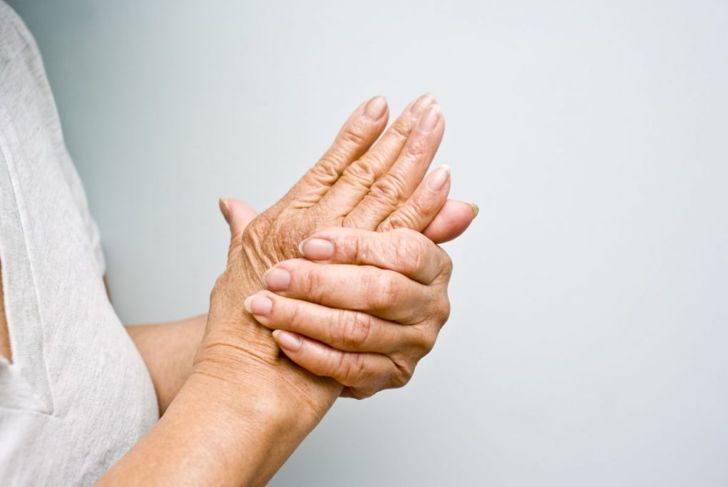Almost everyone has felt a passing tingling or numbness in their hands or fingers. Usually, this happens when a limb falls asleep, a phenomenon known medically as transient paresthesia. However, sometimes these sensations are due to diseases, infections, or other medical problems of varying severity. A simple way to determine if the cause is serious is to rub the arms, hands, and fingers. It’s unlikely that there’s an underlying problem if symptoms improve. If they persist, there may be damage, irritation, or compression of the nerves.
Raynaud’s Disease
Raynaud’s disease can affect people who live in colder climates or who have other risk factors. Essentially, the smaller arteries that supply blood to the skin narrow, leading to reduced circulation until the fingers, hands, feet or toes warm up. This has a range of effects, though the most common is tingling or numbness in the hands or feet. Usually, the condition isn’t medically serious, though it can affect quality of life. Individuals with Raynaud’s disease may also notice that their fingers change color from white to blue to red when exposed to cold. Some people with Raynaud’s have another underlying health problem such as an autoimmune disease that triggers these symptoms.
Vitamin Deficiency
Among the least concerning tingling or numbness triggers are vitamin deficiencies. Normally, a person develops a vitamin deficiency when they don’t receive enough nutrients through their diet or have issues absorbing vitamins. Several vitamins are important for proper nerve health, including vitamins B1, B6, B12, and E. Of these, a lack of vitamin B12 is most dangerous because it can lead to serious neurological issues. The first effects are usually strange sensations like tingling and numbness in the extremities, muscle weakness, and problems with balance.
Carpal Tunnel Syndrome
One of the most common issues affecting the hands is carpal tunnel syndrome, which causes symptoms such as pain, numbness, and tingling in the hand and wrist. A person develops carpal tunnel syndrome when the carpal tunnel narrows, placing pressure on several tendons and the median nerve, which provides feeling to most of the fingers in the hand. Tingling and numbness are usually the earliest symptoms. Numbness may initially only occur while sleeping. Carpal tunnel is more common in people who use their hands in a repetitive manner, such as typing or holding a vibrating hand drill. Obesity, pregnancy, and other health problems, including an underactive thyroid and diabetes also increase the risk.
Medications
Certain medications list hand and finger sensations among their possible side effects. Occasionally, these issues are transient and will go away without requiring a doctor’s attention. However, they could also be a sign that the medications are causing nerve damage. This is most common with chemotherapy and HIV treatments, though anticonvulsants, anti-infection drugs, and certain heart or blood pressure medications may also be responsible.
Alcohol Use Disorder
Many people around the world have an alcohol use disorder. Signs of a disorder include difficulty regulating alcohol consumption, use of alcohol even after problems develop, or withdrawal symptoms when intake is reduced. Alcohol use disorder can be mild, moderate, or severe, depending on how many symptoms develop and their severity. Alcohol can be toxic to nerve tissue, leading to pain or tingling in the extremities. This is called alcoholic neuropathy. People who drink excessively can also develop numbness and tingling from vitamin deficiencies related to alcohol use.
Rheumatoid Arthritis
While most forms of arthritis primarily affect the joints, rheumatoid arthritis (RA) can damage additional body systems. As an autoimmune disorder, RA results from the immune system attacking its own tissues. In addition to its various effects, inflammation can place pressure on the nerves. Numbness and tingling due to this pressure are some of the earliest symptoms. Some people with rheumatoid arthritis describe a burning sensation, as well.
Lyme Disease
A common tick-borne illness, Lyme disease can cause strange sensations in the fingers and hands. Individuals who live in grassy or heavily-wooded areas are more likely to contract Lyme disease because that’s where disease-carrying ticks thrive. A small, red bump that expands to become a large circle is usually the first sign, and it can take weeks to months before neurological issues begin to occur. Even when an infected tick bites a person, it’s unlikely they will get the disease unless the tick remains attached for over 36 hours.
Neurotoxins
While unlikely to occur, chronic exposure to neurotoxins can cause severe neurological damage. Strange sensations in the extremities can sometimes hint at neurotoxin exposure. Some examples of neurotoxins include
Hexacarbons from solvents and glues
Heavy metals like mercury, arsenic, or lead
Ethanol from fuels, solvents, and antiseptics
Tetanus toxin
Botulinum toxin, widely known as Botox
Many neurotoxins have medical and industrial applications and require chronic exposure or improper use to cause harm.
Spinal Cord Injury
A system of vital nerves runs through the spine, which means spinal cord injuries often result in serious, debilitating problems. A spinal cord injury can have a permanent effect on strength, sensation, and one’s ability to function. When a spinal cord injury is particularly severe, there are a few warning signs that the injury requires immediate medical attention, including numbness and tingling.
Multiple Sclerosis
Even compared to other autoimmune disorders, multiple sclerosis (MS) is unpredictable and serious. Multiple sclerosis occurs when the immune system attacks the myelin sheaths that protect nerve fibers, leading to communication problems between the body and the brain. As with most neurological conditions, numbness or tingling in the hands is an early sign. MS has no cure. Some people lose their ability to move certain limbs, while others have long periods of remission with no new symptoms.

 Home
Home Health
Health Diet & Nutrition
Diet & Nutrition Living Well
Living Well More
More




















